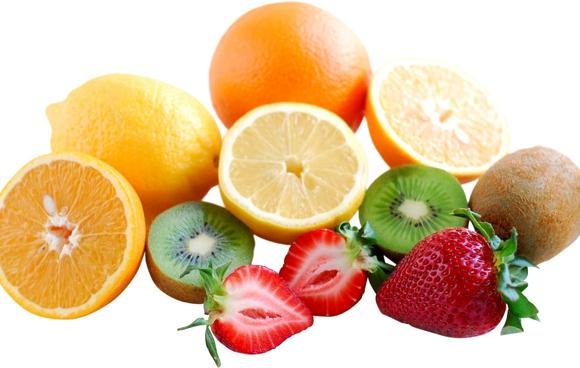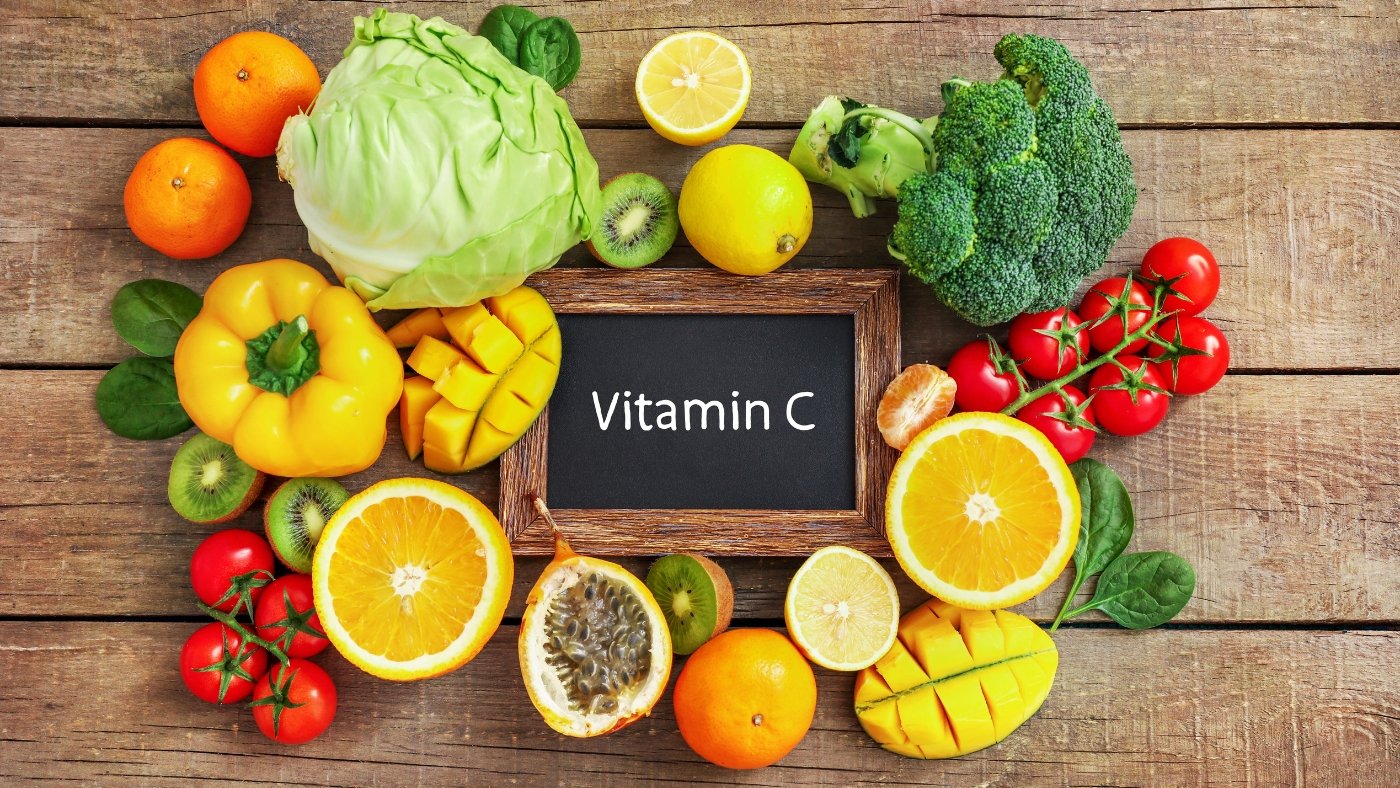We have known about the importance of vitamin C consumption for a long time. Do we really understand what vitamin C is used for and why?
So the question arises, what do you need to know about natural vitamin C and its supplements? Also, what is important to know about the best foods that are rich in natural vitamin C!1
Vitamin C - what is it?
Vitamin C is a water-soluble vitamin that occurs naturally in some foods and can be obtained from quality supplements. Humans, unlike most animals, cannot synthesize vitamin C, so it can only be obtained from food or supplements.
Vitamin C is also essential for our body, which is found in many fruits and vegetables. Our body uses it for growth and development. Vitamin C is also responsible for collagen formation and iron absorption.

The recommended amount of vitamin C for the human body
Recommended daily rate:
The recommended daily allowance for people 19 years and older is 90 mg for men and 75 mg for women.
During pregnancy and breastfeeding, the required amount increases to 85 mg and 120 mg per day, respectively.
Smoking can deplete the amount of vitamin C in the body, so it is recommended that smokers take an additional 35 mg above the recommended daily amount.
Allowed amount to be consumed:
The tolerable intake level is the maximum daily dose that should not have harmful effects on health. The permissible daily amount of vitamin C is 2000 mg per day; exceeding this amount may cause gastrointestinal upset and diarrhea.
Only in certain scenarios, such as under the supervision of a physician or in controlled clinical trials, are higher than daily amounts sometimes used.
Natural vitamin C or ascorbic acid
We can get vitamin C in two ways. The first is natural vitamin C, which we get from eating whole foods. And then there is synthetic vitamin C. Synthetic vitamin C is made by the human body and used in supplements.
So which one is right for you?
When we eat foods rich in vitamin C, such as cherries, we get vitamin C in its purest form. Also, adding other nutrients can help the body absorb certain vitamins and minerals better. In fact, scientists have found that vitamin C in cherries is better absorbed by humans than synthetic ascorbic acid.
Also, it's still unclear how synthetic nutrients are absorbed in your body. This is because there is no scientific standard that accurately measures the absorption of supplements.
When it comes to your daily vitamin C intake, your body benefits greatly from whole food sources, but it can also benefit just as much from vitamin C supplements.
Vitamin C and its health benefits
Although dietary intake of vitamin C is generally recommended, many people take supplements to meet their health needs.
Here are 7 scientifically proven benefits of vitamin C for your body:
- Reduces the risk of chronic diseases
- Helps manage high blood pressure
- Reduces the risk of heart disease
- Reduces the amount of uric acid in the blood and help prevent attacks
- Helps prevent iron deficiency
- Improves immunity
- Protects your memory and thinking as you age
Vitamin C is a water-soluble vitamin that must be obtained from food or supplements.
It is associated with many impressive health benefits, such as increasing antioxidant levels, lowering blood pressure, preventing seizures, improving iron absorption, boosting immunity, and reducing the risk of heart disease and dementia.
Overall, vitamin C supplements are a great and easy way to increase your vitamin C intake if you're having trouble getting enough from food.

Vitamin C deficiency
Vitamin C deficiency is rare in developed countries, but can occur with a limited diet that provides less than 10 mg per day for one month or longer.
Vitamin C is an essential nutrient that must be consumed regularly to prevent deficiency.
Although the symptoms of a severe vitamin C deficiency may take only a few months to appear, there are some subtle signs to look out for.
Here are the 6 most common results of vitamin C deficiency:
- Rough skin
- Spoon-shaped fingernails with red spots or lines
- Dry skin
- Easy bruising
- Slow healing wounds
- Painful, swollen joints
Vitamin C deficiency is relatively rare in developed countries, but still affects more than 1 in 20 people.
Some of the first signs of deficiency include:
- Fatigue
- Red gums
- Easy bruising and bleeding
- Joint pain
- Rough, bumpy skin
Inflammation, iron deficiency and unexplained weight gain may be other signs to look out for.
Too much vitamin C
Oral vitamin C supplements are generally considered safe when taken in appropriate doses. Taking too much vitamin C, such as 3000mg per day, can cause side effects, including:
- Nausea, vomiting and diarrhea
- Flatulence
- Fatigue and drowsiness, and sometimes insomnia
- Headache
- Redness of the skin
Oral vitamin C supplements can cause kidney stones in some people, especially when taken in high doses. Long-term use of more than 2,000 milligrams per day of oral vitamin C supplements increases the risk of side effects.
Before having any medical tests, tell your doctor that you are taking vitamin C supplements. High levels of vitamin C may affect certain tests.
Amount of vitamin C needed for children
Vitamin C is an essential nutrient for the health and development of our children. It helps restore red blood cells and strengthens the immune system.
Children between 1 and 3 years of age need 15 mg of vitamin C per day, and older children between 4 and 8 years of age need 25 mg per day.
Many fruits and vegetables contain vitamin C, especially red and orange fruits such as strawberries, red peppers, and oranges.
Vitamin C deficiency is rare, but if you are concerned that your child is not getting enough, talk to your doctor.

Which food has the most vitamin C?
It is very important to get enough vitamin C from food, but you need to know what to eat.
Fruits and vegetables are the best sources of this vitamin.
- Extreme malpighia – This exotic superfruit contains 30 times more vitamin C than oranges!
- Medicinal black myrtle – Camu Camu is a sour berry from the Amazon rainforest. This tropical fruit is best known for its vitamin C content, with over 2,000 mg!
- Gooseberry - Gooseberry is a nutrient-rich berry often used in Ayurvedic medicine. It is a rich source of antioxidants, phenols and vitamin C, with about 600-700 mg per fruit.
- Chili pepper – One green chili pepper provides 121 % of the recommended daily amount of vitamin C. Also, which is best known for its metabolism-boosting properties.
- Guava – This tropical superfruit is packed with antioxidants, fiber, and vitamin C. One guava fruit contains 126 mg of vitamin C. In addition to its immune-boosting properties, studies show that guava can help lower blood pressure and total cholesterol.
- Broccoli - Eating just one cup of steamed broccoli will give you your daily dose of vitamin C! This cruciferous vegetable contains 89 mg of vitamin C per 100 grams and is an excellent source of vitamin A.
- Cauliflower - kale is a great source of nutrients whether you're sauteing it, baking it, or grilling it. It's high in fiber, protein and 46% of your vitamin C.

Eating some of the above foods every day should improve your health.
Eating foods rich in vitamin C is an important step in achieving positive health benefits and disease prevention.
Vitamin C supplements
People do not always get the required amount of vitamin C with food, sometimes it is necessary to absorb it in other ways, for example: supplements. There are many useful supplements your health. Here are some of them:
- Ascorbic acid
- Metabolites of ascorbate and vitamin C
- Vitamin C with bioflavonoids
- Liposomal vitamin C
- Ascorbyl palmitate
All forms of vitamin C are very safe. Doses up to 2000 mg per day are commonly used and well tolerated. Diarrhea is not likely unless 3000 mg/day is exceeded. However, if the high daily dose is divided and taken up to three times a day, the likelihood of indigestion is less.
did you know
Vitamin C improves the absorption of non-heme iron, the type found in plant foods such as green leafy vegetables. Drinking a small glass of 100% fruit juice or eating foods rich in vitamin C can improve iron absorption.
Vitamin C can be destroyed by heat and light. Cooking food at high temperatures or for too long a time can break down the vitamin. Since the vitamin is water soluble, it can also seep into the cooking liquid and lose its benefits if the food is overcooked. The ripest foods, fruits or vegetables, contain the most vitamin C.
Vitamin C - your body can never lack it
Vitamin C is necessary for the body to develop and function properly. It plays an important role in immune function.
Today, people mostly use vitamin C to prevent and treat colds. It is also used to treat autism, breast cancer, heart disease and many other conditions.
As with any other mineral or nutrient, you should monitor your vitamin c intake to avoid getting too much or too little.
How find out which vitamins, minerals or other supplements the most appropriate at the moment? Try it free test "Your Day" ! where you will find out needs of the body and you will get personal recommendation!











